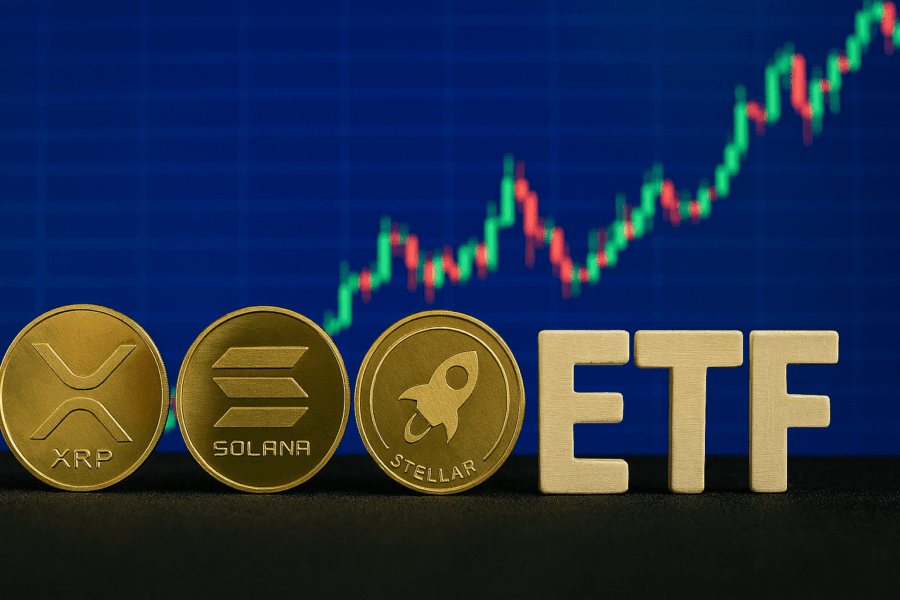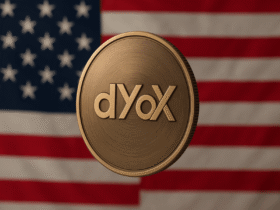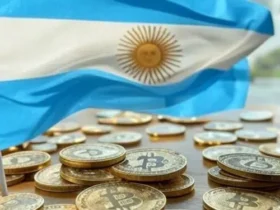So far, the SEC has only approved bitcoin (BTC) and ether (ETH) ETFs.
The US government shutdown delays the review of proposals.
The roar of financial markets resonates with promises of innovation, but for investors seeking exposure to digital assets such as XRP, solana (SOL), dogecoin (DOGE) or litecoin (LTC) through exchange-traded funds (ETF), the wait is longer.
While bitcoin (BTC) and ether (ETH) ETFs already navigate the US markets, Other cryptocurrencies face a regulatory and political labyrinth that slows their entry.
The perspective of investors, eager to diversify their portfolios, clashes with the reality of a United States Securities and Exchange Commission (SEC) limited by the recent government shutdown and an approval process that moves at a slow pace.
A path started by bitcoin
The journey of digital asset ETFs in the United States began with a milestone in 2024, when the SEC approved the first bitcoin ETFs.
This achievement had its origin in a legal battle led by Grayscale Investments. In 2022, Grayscale sued the SEC following the rejection of its application to convert its investment fund into a spot bitcoin ETF. The court ruled in favor of Grayscale, arguing that the SEC had not adequately justified its refusal, especially after approving Bitcoin futures ETFs.
This precedent forced the SEC to reconsider its stance, opening the door to digital currency ETFs created by Satoshi Nakamoto in January of last year, followed by ether in June 2024.
Among the bitcoin ETFs, BlackRock’s iShares Bitcoin Trust (IBIT) stands out, which has become one of the most successful fund launches in history.
In less than two years, IBIT is positioned as the largest known bitcoin manager globally, with 804,944 BTC, valued at $87 billion. This success underscores the potential for digital asset ETFs to attract massive capital, but also highlights the gap for other digital currencies still waiting for their chance.


The fever of cryptocurrency ETF proposals
The success of bitcoin and ether ETFs, combined with a political shift following the departure of Joe Biden and the return of Donald Trump to the White House in January 2025, unleashed an avalanche of applications.
Companies and asset managers, such as VanEck, 21Shares and ARK Invest, submitted proposals for ETFs based on XRP, SOL, DOGE, LTC and other digital assets.
According to Eric Balchunas, senior ETF analyst at Bloomberg, there are currently 155 fund applications tracking 35 different cryptocurrencies awaiting approval.


The specialist projects that the number of proposals could exceed 200 in the next yeardriven by growing interest from institutional and retail investors. “The market is hungry for regulated exposure to these assets,” he noted. However, the SEC’s ability to process these requests has been severely limited.
The impact of the government shutdown
Since September 30, 2025, a budget disagreement between Democrats and Republicans caused a partial shutdown of the US government.
The SEC, not being considered an essential service, operates with reduced staff, which has slowed down the review of complex regulatory proposals, including ETF applications. This bottleneck has left the proposals in administrative limbo, frustrating managers and investors hoping to capitalize on market momentum.
The outlook is worsening with key deadlines already passed. ETF proposals for Litecoin (due October 2), solana (October 10),
These delays reinforce the perception of a stagnant process, fueling investor frustration who see how time plays against their expectations.
New rules, new hopes
Despite the delays, a regulatory change has fueled optimism. Last September, the SEC implement a generic listing standard that streamlines the ETF approval process.
This standard allows exchanges to file standardized Forms 19b-4, which detail the rules under which an ETF will operate in the market.
Previously, the SEC required issuers and exchanges to withdraw and amend these forms to meet specific requirements, a process that could take months. New standard reduces bureaucracy, allowing for faster review once the SEC resumes full operations.
This change has been key for managers to present proposals with greater confidence. However, The government shutdown has temporarily overshadowed these improvements.leaving approvals on hold.
There is cautious optimism in the air
Nate Geraci, President of NovaDius Wealth Management, expressed cautious optimism about the future of digital asset ETFs.
“Traditional investors (TradFi) are not ready to dive into the complexity of individual tokens like solana or dogecoin,” he explained. Geraci is referring to the difficulty for retail and institutional investors to evaluate and manage digital assets without the structure of an ETF, which offers diversification and regulation.
“An ETF is a gateway: it allows investors to gain exposure to this emerging asset class without needing to understand each protocol or digital wallet,” he added.
Geraci also highlighted the preference for a diversified approach. “Investors don’t want to choose between XRP or solana; they want a product that combines multiple digital assets and mitigates risks,” he said. This demand has led to proposals for ETFs that track baskets of cryptocurrencies, similar to traditional index funds..
In early September, Geraci predicted “wild months” for the ETF market, anticipating a flurry of approvals following regulatory developments. However, the government shutdown changed the landscape.
“It is ironic that fiscal debt and political theater are holding back a market that cryptocurrencies seek to decentralize,” he commented. With this phrase, Geraci alludes to the philosophy behind cryptoassets: reducing dependence on centralized systems, such as governments and banks, which now, paradoxically, hinder their integration into regulated markets.
Risks of cryptocurrency ETFs
However, not everyone shares this enthusiasm. Bruno Vaccotti, analyst and founder of the Paraguayan Chamber of Digital Asset Mining, warns about the risks of cryptocurrency ETFs. “A very clear line must be drawn: a bitcoin ETF may make sense, but an ETF for any other digital currency would be a huge mistake,” he stated in a CriptoNoticias conversation.


Vaccotti argues that “most tokens, not to be absolutist and say all, are destined to disappoint their investors. They are centralized, inflationary projects, without true scarcity or monetary purpose.”
For him, these assets are experiments that cannot sustain long-term value. “That the traditional market supports them through ETFs would only serve to institutionalize speculation and legitimize assets without foundations,” he says.
Vaccotti defends that bitcoin is unique. “It doesn’t need marketing or future promises: its fixed offer, its decentralized network and its history of resilience are proof enough,” he explained. Therefore, consider that a bitcoin ETF acts as an on-ramp for millions of investorswhile cryptocurrency ETFs “would be just another trap of the financial system trying to sell regulated smoke.”
Suppressed expectations
Despite the delays, the enthusiasm does not fade. Geraci believe that, Once the government shutdown is over, the SEC will face unprecedented pressure to approve new proposals.
“The floodgates will open,” he said. “Investor interest, combined with a clearer regulatory framework, will create a favorable environment for digital asset ETFs,” he adds.
Balchunas agrees, pointing That demand for ETFs is not limited to retail investors. “Institutionals also want to participate, but they need regulated products that align with their risk strategies,” he explained.
The approval of ETFs for XRP, solana or other digital assets could unlock billions in institutional capital, transforming the financial landscape.
For traditional investors, ETFs represent a safe and regulated way to enter this space. The resolution of the government shutdown will be key to determining when these proposals will go from paper to reality.
For now, the message is clear: patience. The SEC, despite its current limitations, faces increasing pressure to adapt to an unexpected market. When trading normalizes, digital asset ETFs could mark the next chapter in the integration of cryptocurrencies into traditional markets, offering investors a new way to diversify their portfolios.






Leave a Reply